[Lupines East of the Cascade Mountains of Oregon and Washington]
Desert Lupine, Dry Ground Lupine, Prairie Lupine
Lupinus lepidus var. aridus
Synonyms: Lupinus aridus ssp. aridus, Lupinus aridus var. aridus, Lupinus lepidus ssp. aridus, Lupinus volutans
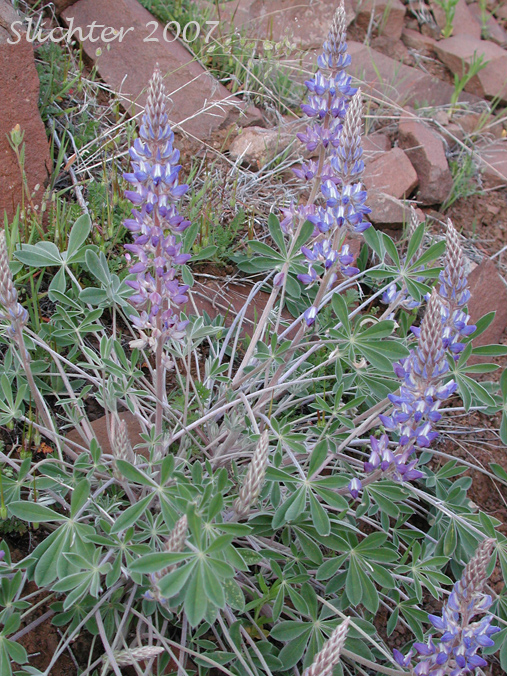
The photo above shows prairie lupine as seen along Girds Creek Road at the eastern base of Sutton Mountain in central Oregon.........April 8, 2007. As seen above, it has a habit of low growth of foliage with several to many elongated racemes extending above the foliage.
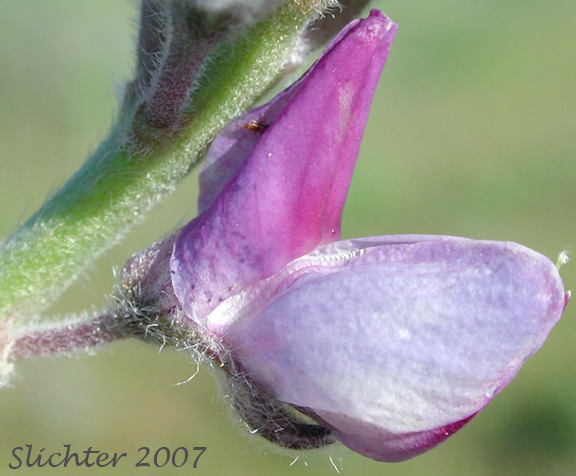 The photo at right shows a close-up sideview of the corolla of prairie lupine as seen along Balloon Tree Road. Note that the erect banner arises more than half way back of the wings.
The photo at right shows a close-up sideview of the corolla of prairie lupine as seen along Balloon Tree Road. Note that the erect banner arises more than half way back of the wings.
Characteristics:
Prairie lupine is a small, attractive
perennial lupine of diverse form and habitats in the Pacific Northwest. It ranges
from matted forms to erect plants ranging from 10-35 cm high. The stems are
fairly short and often shorter than the tallest leaves. If the stems extend
beyond the leaves, then the stem is often prostrate or spreading. The leaves
are mostly basal with the petiole 2-5 times longer than the blades. The palmately
compound leaves have 5-9 oblanceolate leaflets. The individual leaflets range
from 1-4 cm long and are noticeably hairy on both surfaces.
The inflorescence is a tight raceme of crowded flowers. the
raceme ranges from 4-15 cm in length. individual flowers are 8-13 mm long and
mostly of a bluish color with a lighter banner. The banner is well reflexed
from the keel and is not haired on its surfaces. The upper lip of the calyx
is double-toothed. The hairy pods range from 10-20 mm long with 2-4 seeds.
Varieties of Lupinus lepidus:
Variety aridus:
Racemes partially concealed by the longer leaves. Flowers 9-11 mm long. Found
from south-central Washington to norhtern California (entirely east of the Cascades)
and east to west-central Idaho and Nevada.
Variety cusickii:
Racemes mostly concealed by the leaves. Wing petals are broader than 4 mm and
usually over 8 mm long. The banner is usually wider than 3/5 of its length.
Found from the Blue Mts. of northeastern Oregon and in Okanogan County in Washington.
Variety lepidus:
Racemes are well extend above the longest leaves. Flowers 11-13 mm long. Found
in the lowlands west of the Cascades from southern British Columbia to northwestern
Oregon.
Variety lobbii:
Racemes are less than 5 cm long and extend beyond the tallest leaves. Leaflets
usually less than 15 mm long. Plants prostrate and matted. Subalpine plants
of the Cascade and Olympic Mts. and also found east to western Idaho and Nevada.
Variety utahensis:
Racemes mostly concealed by the longer leaves. Wing petals slender, usually less
than 3 mm wide and from 7-8 mm long. The banner is usually less than 3/5 as
wide as it is long. Plants found from central Oregon through central Idaho and
southeastern Oregon to western Montana and Wyoming and hence south to Colorado
and Utah.
Habitat:
Ponderosa pine forest and sagebrush desert from the foothills
into the lower mountains.
Range:
Prairie lupine (variety aridus) is found east of the
Cascade Mountains from south-central Washington south to northern California,
eastward to west-central Idaho.
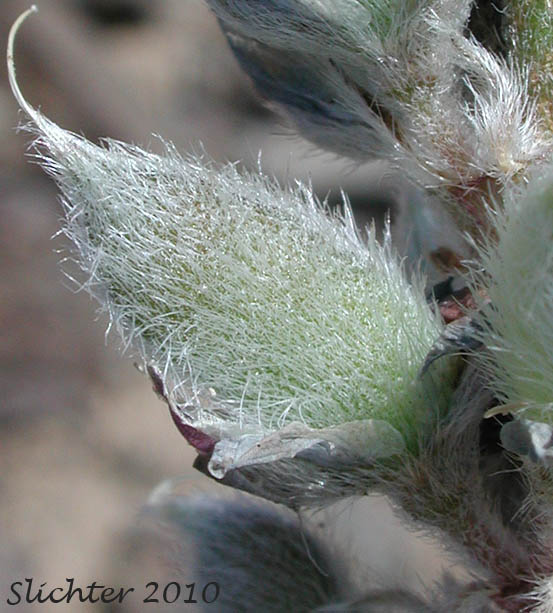 -
- 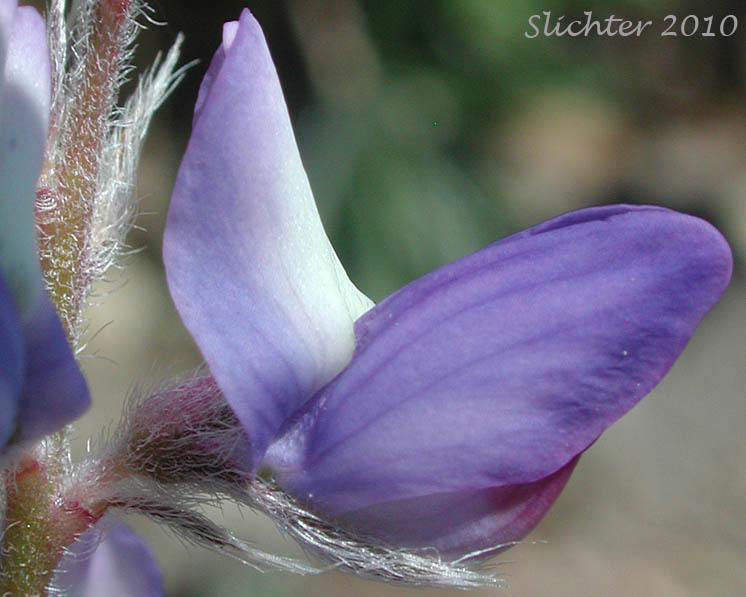
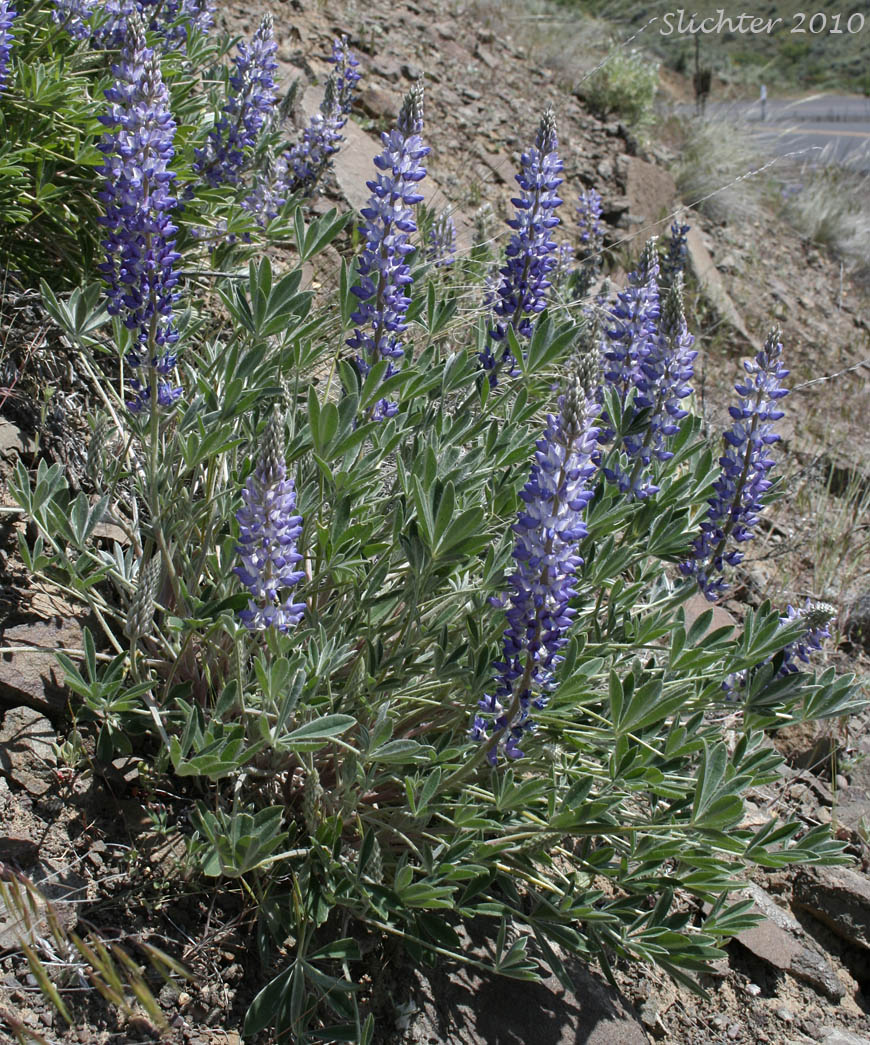 -
- 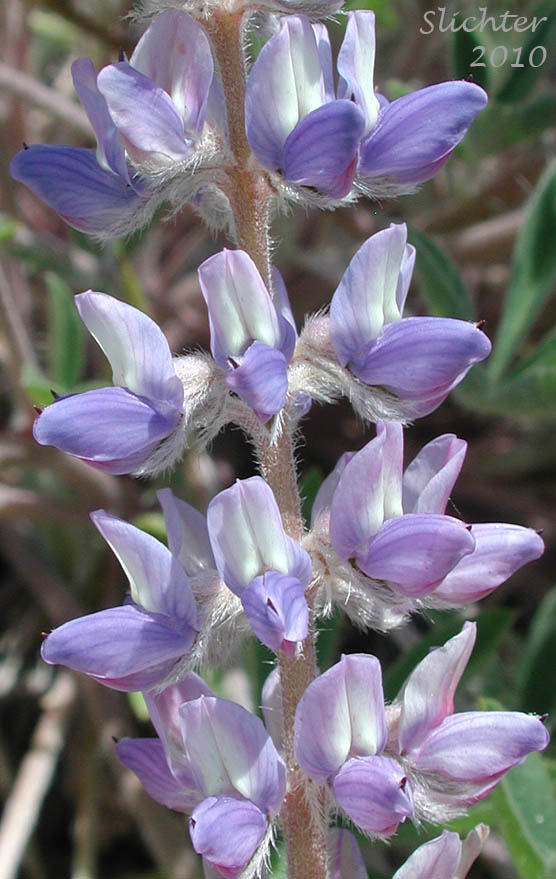 -
- 
Additional close-up views of prairie lupine as seen on a gravelly cut bank along Bakeoven Road just east of Maupin, OR..........May 14, 2010. Note that the racemes begin below the upper level of the leaves.
The photo above s hows a close-up of the underside of the leaflets of priairie lupine. Note the numerous long, silvery hairs coating the underside of each leaflet.
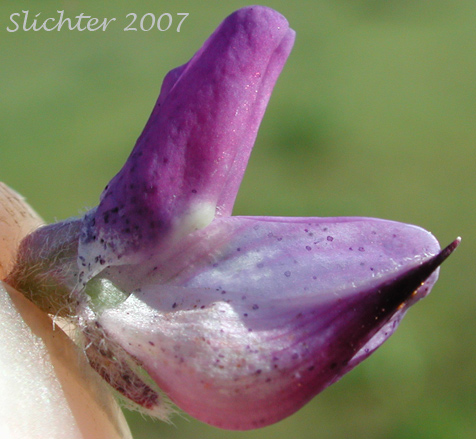
The photo above shows a close-up of the keel of prairie lupine. Note the tiny hairs lining the upper margin of the keel.
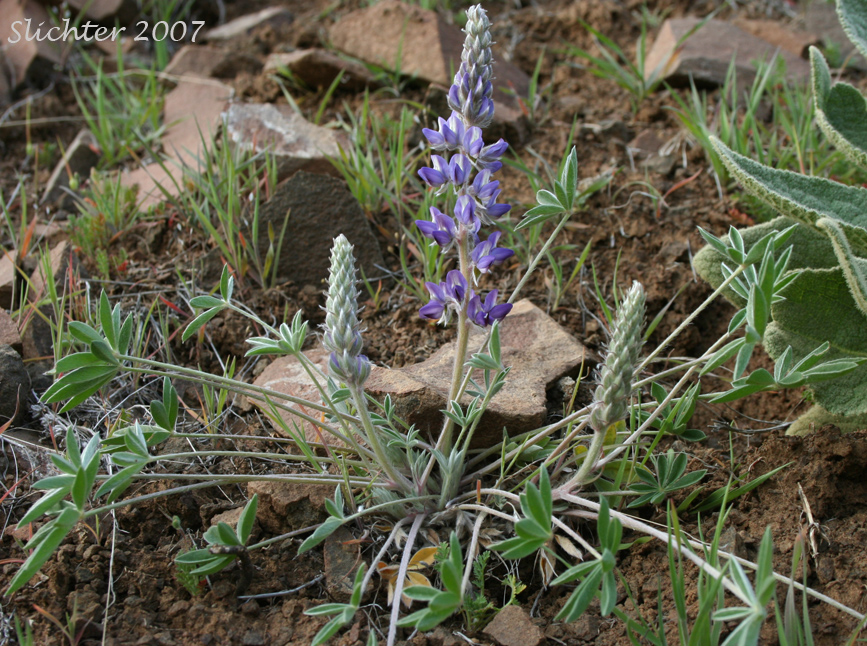
The photo above shows prairie lupine as seen along Girds Creek Road at the eastern base of Sutton Mountain in central Oregon..........April 8, 2007.

The photo above shows prairie lupine as seen along Balloon Tree Road near Tollgate in the Umatilla National Forest of northeastern Oregon.........June 27, 2006. As seen above, it has a habit of low growth of foliage with several to many elongated racemes extending above the foliage.
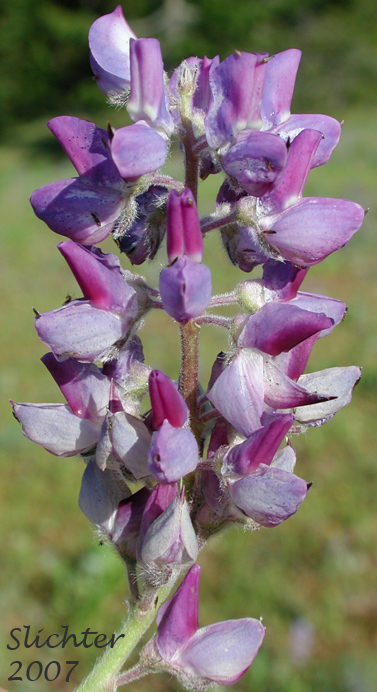
The photo above shows a close-up of the elongated raceme of prairie lupine as seen along Balloon Tree Road in the Umatilla NF in 2006.
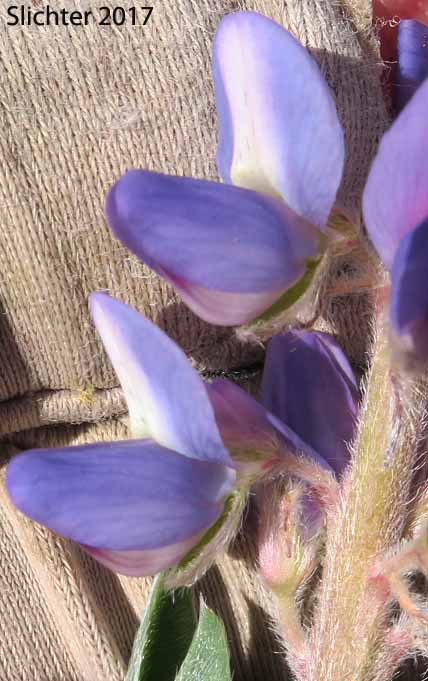 -
- 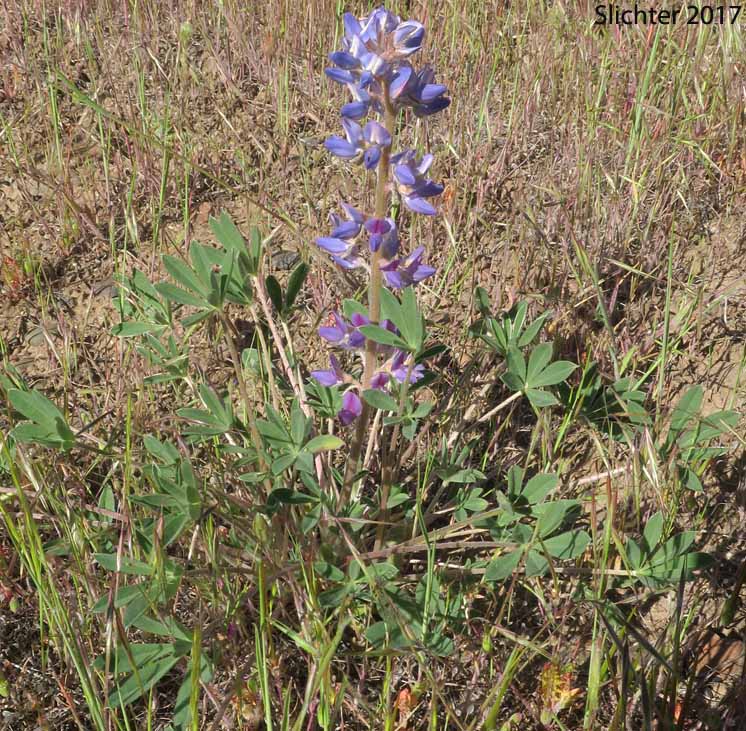 -
- 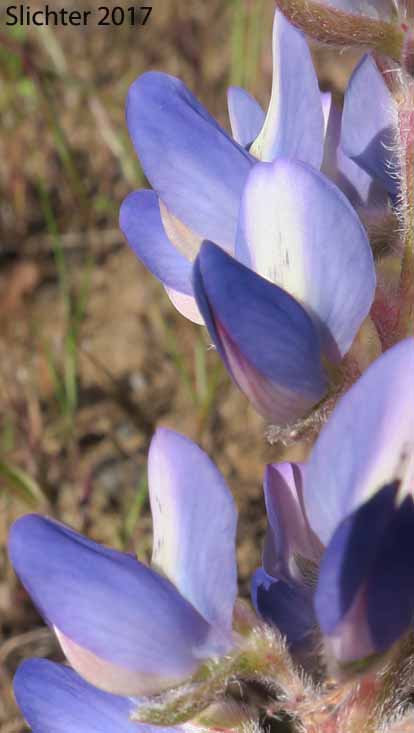
Prairie lupine blooming along the Hard Stone Trail, west bank of the John Day River, Cottonwood Canyon State Park.........May 3, 2017.
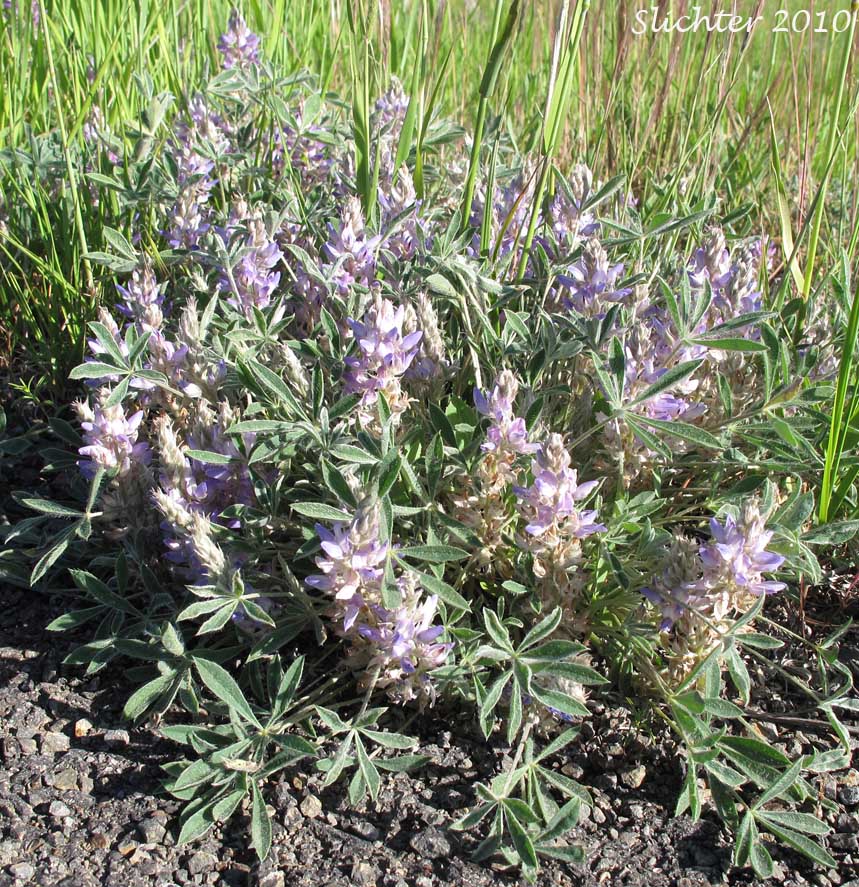
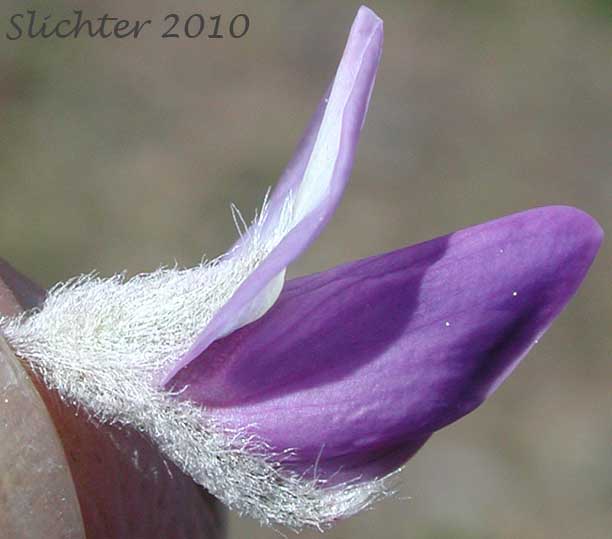 -
- 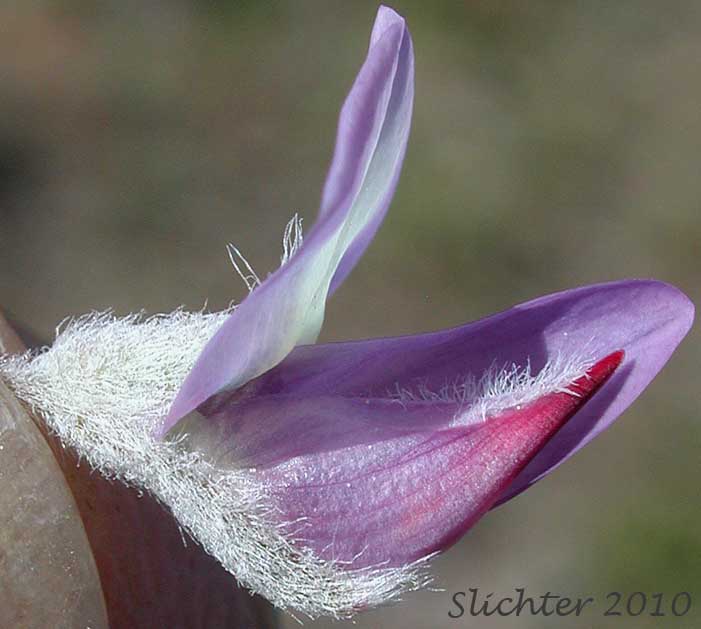
Additional photos of prairie lupine as seen along Forest Service Road #16 in Logan Valley, Malheur National Forest........July 1 & 3, 2010.
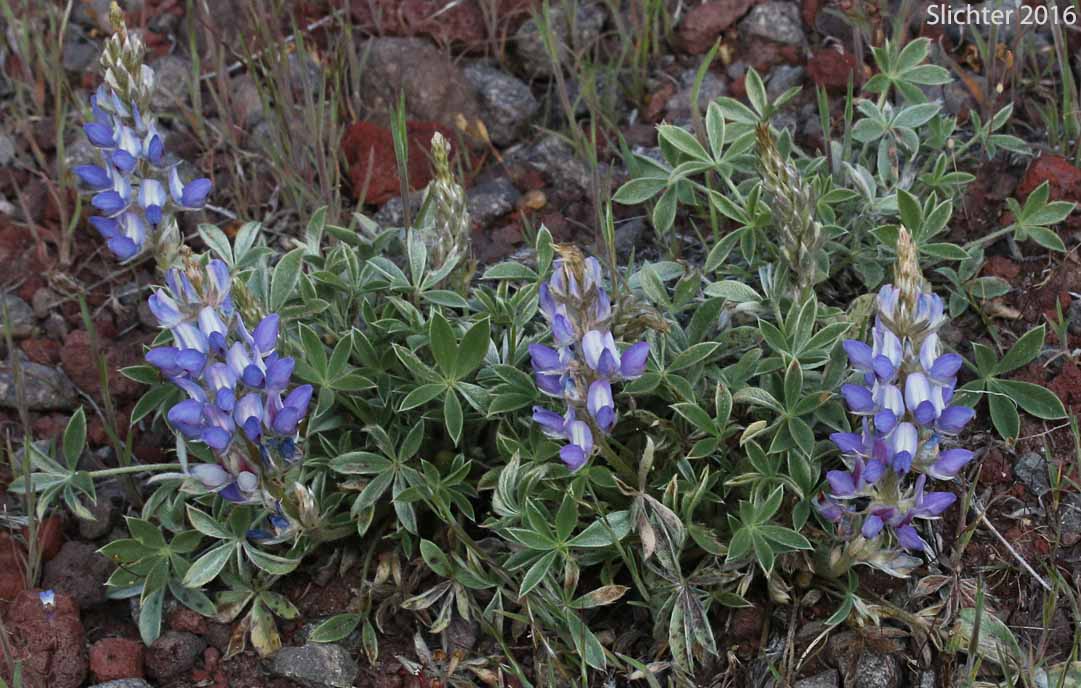 -
- 
What appears to be prairie lupine as seen (left) along FS Road #3142 in southern Thompson Valley, Fremont National Forest..........May 19, 2016. The photo at right shows prairie lupine beginning to bloom on Bickleton Ridge in the Bickleton Ridge Unit of the Klickitat Wildlife Area.........June 17, 2017.
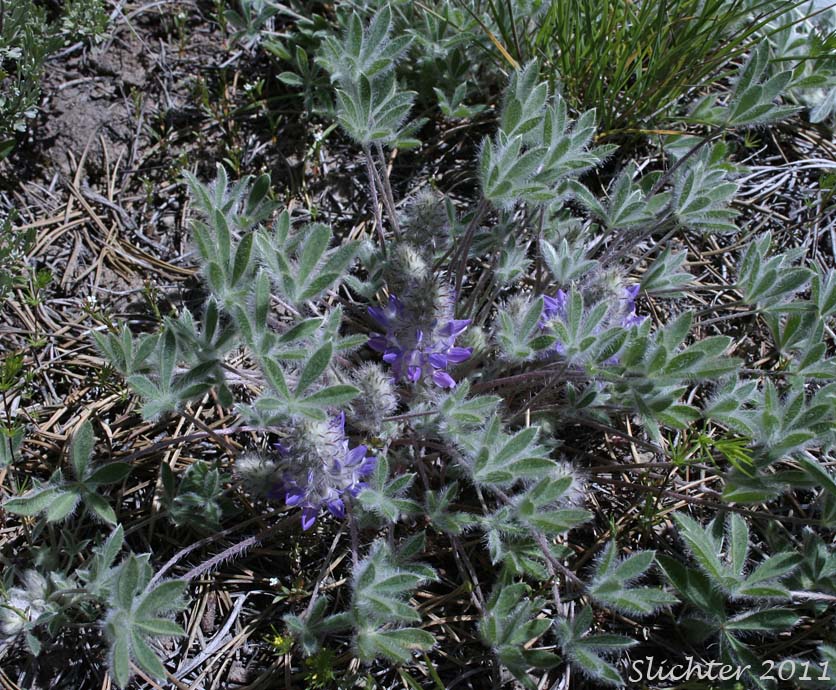 -
- 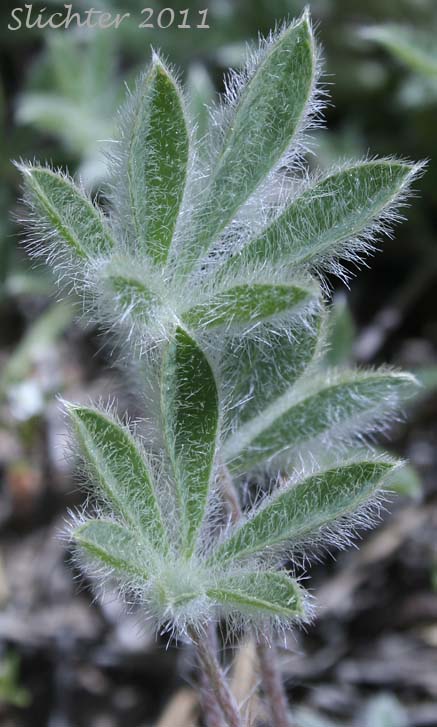
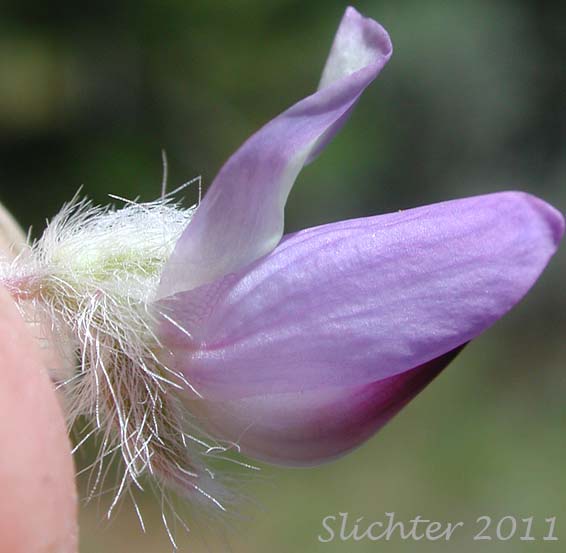 -
- 
Examples of prairie lupine from along Forest Road #1647 in southeastern Logan Valley, Malheur National Forest..........June 26, 2011. At this stage, the plants look like var. utahensis, which has racemes on short peduncles that barely reach the level of the tops of the leaves. One would need to revisit the site several weeks later to ensure that the racemes actually extend beyond the leaves as in var. aridus.
Paul Slichter
 The photo at right shows a close-up sideview of the corolla of prairie lupine as seen along Balloon Tree Road. Note that the erect banner arises more than half way back of the wings.
The photo at right shows a close-up sideview of the corolla of prairie lupine as seen along Balloon Tree Road. Note that the erect banner arises more than half way back of the wings.